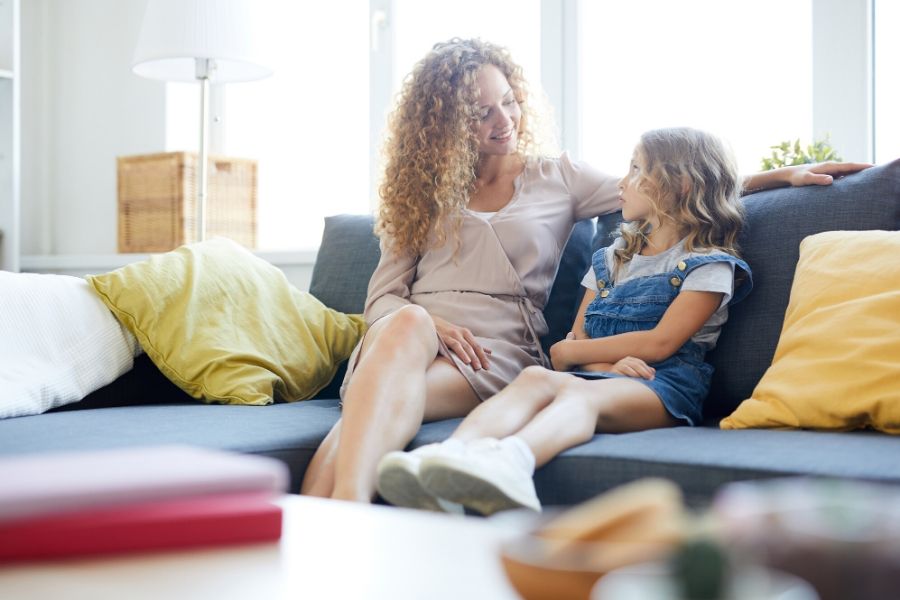The world has been facing COVID-19 for months now, but talking about it is an ongoing effort.
 As circumstances and knowledge change, it’s your job to make sure your kids know what’s going on and have someone to talk to. As states reopen and lift social distancing restrictions, it’s important for everyone to stay educated on the topic and the best course of action moving forward. Talking about these circumstances isn’t always easy, but you’re not alone. As you start and continue these conversations, keep in mind these tips for talking to your kids about COVID-19.
As circumstances and knowledge change, it’s your job to make sure your kids know what’s going on and have someone to talk to. As states reopen and lift social distancing restrictions, it’s important for everyone to stay educated on the topic and the best course of action moving forward. Talking about these circumstances isn’t always easy, but you’re not alone. As you start and continue these conversations, keep in mind these tips for talking to your kids about COVID-19.
Come Up With a Plan of Action
Scary circumstances are much easier when you know what to do about them. Help your kids come up with the best course of action to combat coronavirus. If you don’t have masks already, buy or make some with your kids. Hold each other accountable about wearing your masks when you go out. Work together to come up with ways to pass the time while you’re social distancing. You should also help your kids handle any extra steps or changes that will take place as areas reopen. If they’re heading back to school in the fall, help your kids understand what will be different and how they can best prepare for those circumstances.
Know Your Facts
The more you know about coronavirus, the better you can explain things to your kids. Make sure you know the facts about coronavirus. Stay updated and get your information from reliable sources. This will help you answer the questions your kids might have. Of course, one of the best tips for talking to your kids about COVID-19 is to be honest. If you don’t know an answer, admit it and offer to look it up. Better yet, look up the information together so you can teach your kids how to find reliable answers for themselves.
Be a Source of Reassurance
A lot of people are dealing with uncertainty, worry, and other uneasy emotions. While this is perfectly normal, it’s important to stay calm and reassuring when talking to your children about coronavirus. Let them know that it’s safe to come to you with questions and fears they may have. Help your children understand that it’s okay to feel upset or scared. Remember that your children are looking at your reactions to help them figure out what to do. When you stay calm and take these circumstances in stride, you help them regain a sense of confidence and normalcy.
More Resources
How to Get the Funds You Need in an Emergency
How to Prepare for Emergency Situations at Home